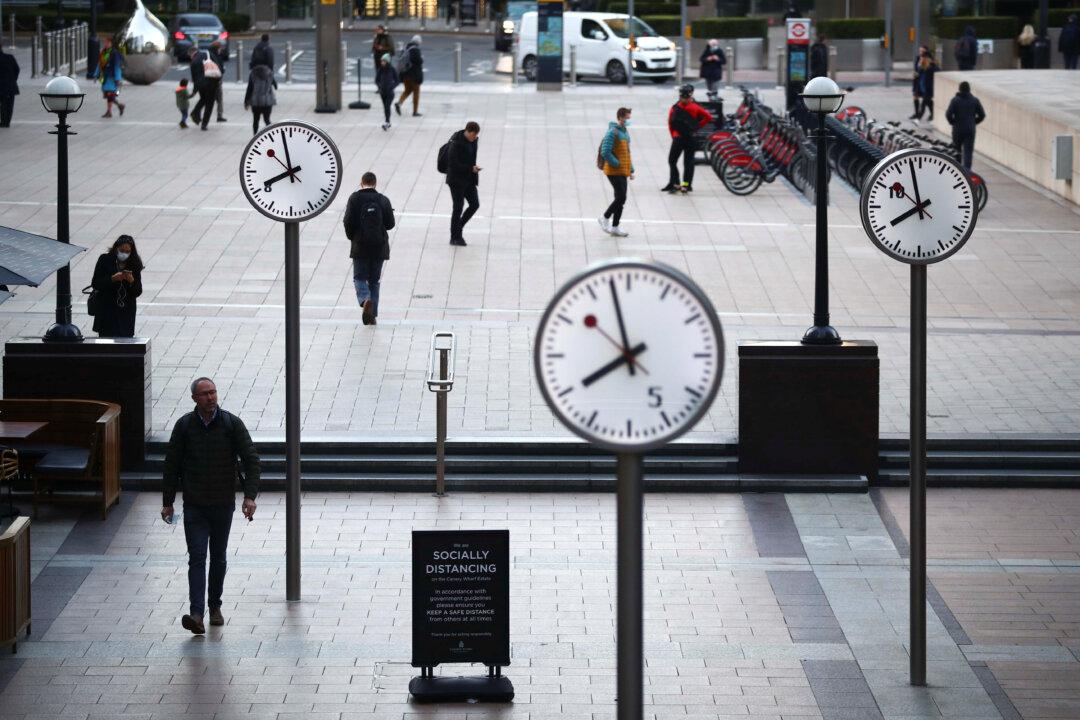The British government borrowed six times more than before the CCP virus pandemic, pushing the public debt to its highest since 1960, according to the latest government data.
During the pandemic, Britain’s borrowing was 208.5 billion pounds ($272.4 billion) in the first six months of this year, over 174.5 billion pounds ($227.8 billion) more than in the same period last year, the Office for National Statistics (ONS) said on Wednesday.





